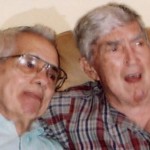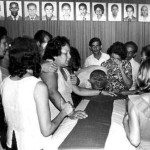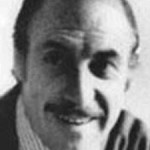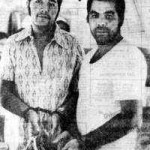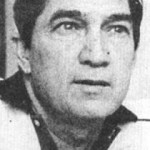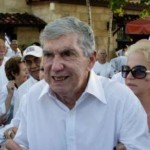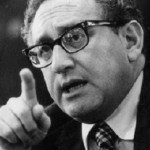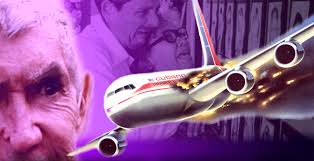
Verbatim: The State Department’s references to Posada Carriles
The following are excerpts from an Oct. 22, 1976, memorandum to Secretary of State Henry Kissinger from the Director of the Bureau of Intelligence and Research, Harold Saunders, and the Assistant Secretary of State for Inter-American Affairs, Harry Shlaudeman. The subject is the bombing of Cubana de Aviación Flight 455, Cuba-bound out of Barbados, on Oct. 6, 1976.
ON THE BOMBING SUSPECTS:
“[Hernán Ricardo Lozano] was arrested in Trinidad on suspicion of having planted a bomb in the Cubana plane. Caracas radio announced on October 18 that he confessed to sabotaging the airliner. A CIA source […] reports that Ricardo may have been trained in the use of explosives and investigative techniques by Luis Posada. CIA information also reveals that Trinidadian officials have told the Venezuelans that they have a taped telephone conversation between Ricardo and Posada discussing their participation in the bombing. […]”
[Editor’s Note: CIA stands for Central Intelligence Agency.]
“[Freddy Lugo] was arrested in Trinidad with Ricardo on suspicion of having planted the bomb aboard the Cubana plane. […] Lugo, a Venezuelan citizen, is also a photographer employed by Posada’s company.”
“[Luis Posada Carriles] was arrested on October 14 in Venezuela along with Orlando Bosch and three others accused of conspiring to sabotage the plane. Posada, a Cuban exile who is now a Venezuelan citizen, is vehemently anti-Castro and is suspected to having been the main supporter of Bosch during the latter’s stay in Venezuela prior to being arrested in November 1974. Posada was formerly chief of the counterintelligence division of the Venezuelan Intelligence Service, DISIP [Police Intelligence Services Directorate.]
“A Venezuelan official, who declined to be identified, has been quoted in the New York Times (October 20) as saying that Posada had been given ‘technical training by the CIA.’ The CIA has informed us that Posada was a member of the Bay of Pigs Brigade in 1961 and in this capacity received paramilitary training in Guatemala and also probably received at least rudimentary familiarization training in demolitions.
“From March 1963 to March 1964 Posada was in the U.S. Army at Fort Benning, finishing up as a second lieutenant and commanding officer of a weapons platoon (reportedly in a Ranger Battalion). During his U.S. military service Posada likely would have received demolitions training. […] CIA says that Posada subsequently became a paid informant. […]
POSADA APPARENTLY ‘RATTED’ ON ASSOCIATES
“Posada was the source for two CIA reports concerning planned operations by Bosch’s organization. The first, issued on February 19, 1976, concerned a plan to assassinate Salvador Allende’s nephew in Costa Rica. The second, based on information acquired on June 22, 1976, reported a plan to place a bomb on a Cubana Airline flight travelling between Panama and Havana on June 21. […]
“As you know, the FBI is still actively investigating the bombing death of former Chilean Foreign Minister [Orlando] Letelier in Washington on September 21. […] Both Bosch and Posada have already been linked by the U.S. and Latin American press to the assassination. On October 20, the New York Times cited Venezuelan authorities as saying that a sketch of the Washington area where Letelier’s car was blown up was found by police in Posada’s residence. […]
SUMMING UP
“What this adds up to [is that] CIA has had past relationships with three of the people alleged to be involved in the Air Cubana crash, but any involvement that these persons may have had with the crash was without CIA’s knowledge. […]
“CIA’s relationship with Posada, who more and more appears to be the person who planned the bombing, could possibly lead to some misinterpretation and embarrassment in that he provided unsolicited information on significant extremist planning, most recently in February and June of this year. On those occasions, he related details of an assassination threat against Salvador Allende’s nephew — an action CORU reportedly was attempting to undertake to gain DINA’s support — and of CORU’s planning to sabotage a Cuban plane in June.
[Editor’s Note: CORU stands for Coordination of United Revolutionary Organizations, Bosch’s group; DINA stands for Chile’s Directorate of National Intelligence, created after the 1973 military coup.]
“Posada’s reasons for volunteering this kind of information after he had been terminated as a paid informant are unknown. He could have been trying to remain in CIA’s good graces, hoping to use the relationship on visa requests and such. However, it is at least possible he may have been probing to gauge CIA’s reaction to CORU’s efforts to harass the Cuban Government. In this context, we have considered the possibility that Posada could have misinterpreted the response to his approaches, but CIA assures us that this could not have been the case.”
[Click here to read related article: A State Dept. memo names Posada Carriles as probable terrorist.]

